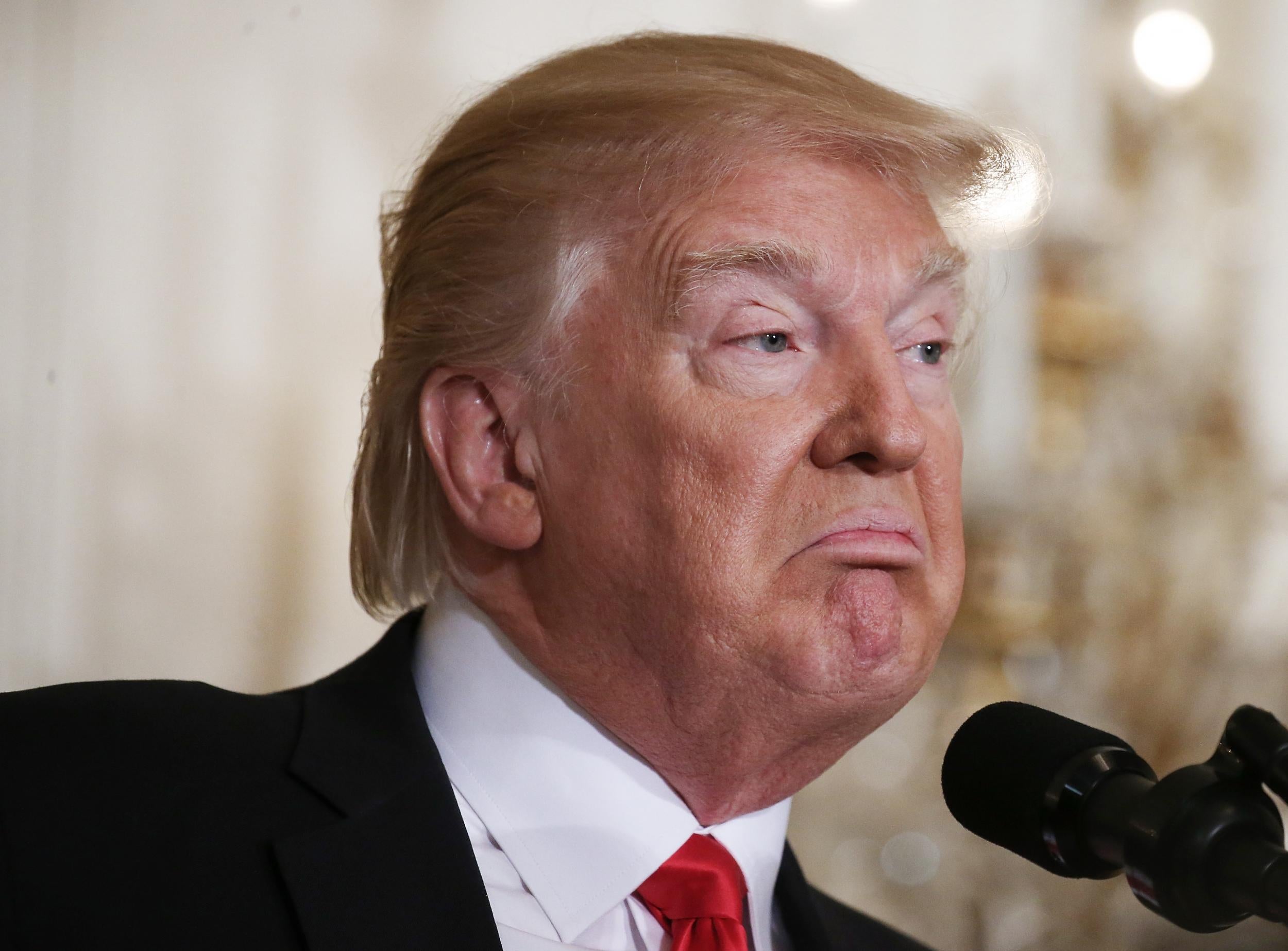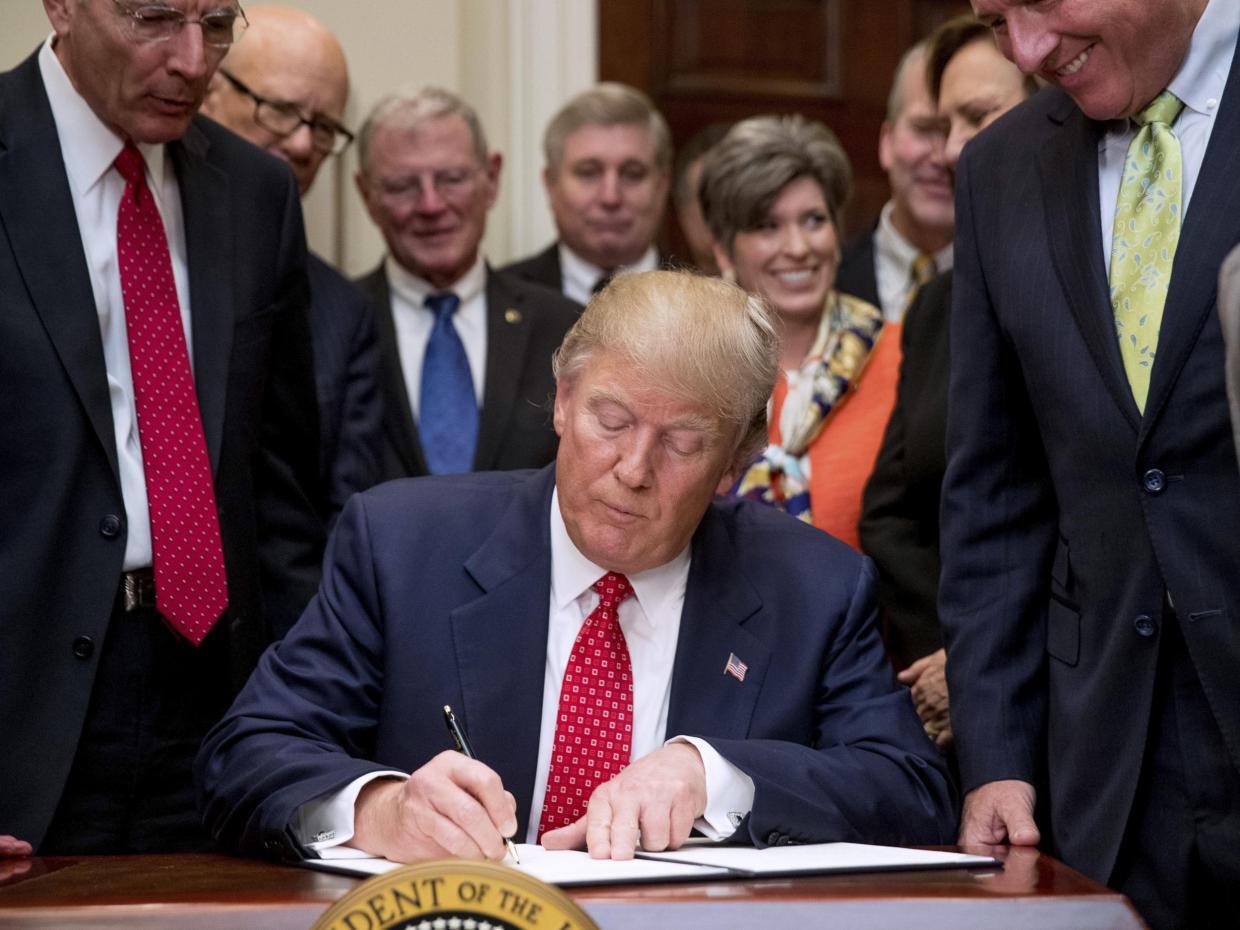Trump slump: Drop in American tourism is costing US billions
As tourists continue to steer clear of Donald Trump’s America, the US travel industry is bearing the brunt of his unpopular policies.

Your support helps us to tell the story
From reproductive rights to climate change to Big Tech, The Independent is on the ground when the story is developing. Whether it's investigating the financials of Elon Musk's pro-Trump PAC or producing our latest documentary, 'The A Word', which shines a light on the American women fighting for reproductive rights, we know how important it is to parse out the facts from the messaging.
At such a critical moment in US history, we need reporters on the ground. Your donation allows us to keep sending journalists to speak to both sides of the story.
The Independent is trusted by Americans across the entire political spectrum. And unlike many other quality news outlets, we choose not to lock Americans out of our reporting and analysis with paywalls. We believe quality journalism should be available to everyone, paid for by those who can afford it.
Your support makes all the difference.The ‘Trump slump’, as it has become known, is alive and well. Since President Trump took office, the numbers show, tourists just aren’t as keen on visiting the United States.
International travel to the US dropped 6.5 per cent in the eight days following the president’s proposed travel ban on January 27 when compared to the same period in 2016, according to travel data company ForwardKeys. Online searches for flights to America also dropped by 17 per cent the same week, said flight app Hopper. And the president of Dubai-based airline Emirates, Sir Tim Clark, confirmed in March that the travel ban, which sought to stop nationals from seven mainly Muslim countries from travelling to the US, immediately triggered a drop in bookings from Dubai by over a third.
All this has resulted in an estimated loss of $185 million in business travel bookings from January 28 to February 4, as calculated by the Global Business Travel Association. The drop-off in tourism is predicted to result in 4.3 million fewer visitors this year, which adds up to a staggering loss of $7.4 billion in revenue for the US.
The UK is no exception to this trend. Since Donald Trump took office, almost a third (29 per cent) of Britons said they have been put off holidaying in America and flight searches to the US have dropped overall by 13 per cent, according to a poll by flight comparison site Cheapflights.co.uk.
“A significant number of Brits have been spooked by what they see happening over the pond, and are beginning to vote with their clicks as they explore alternative options for travel in 2017,” said managing director of Cheapflights Andrew Shelton. “With UK travellers contributing nearly $5 billion a year to the US economy, tourism chiefs in the country should take note of what could be a substantial reduction in support for a major industry there.”
These findings were backed up at the end of February by online booking agent Kayak.co.uk, which found that UK flight searches to Miami – the second most popular US city for overseas visitors – had “fallen off a cliff”. Search was down 52 per cent compared to last year.
On an anecdotal level, many British travellers have told The Independent that President Trump’s policies have put them off a holiday to the US. “As a two-mum family, definitely,” said blogger Laura Costello when asked if she was concerned about travelling to the States now Donald Trump is in charge. “We're going to Florida in December and I would be lying if I said Trump doesn't concern me.”
Similarly, author Damian Barr and his husband changed their travel plans in the wake of Trump's policies, opting to head to Bangkok instead of their regular January trip to California. "We've done this for 10 years, starting in San Francisco and heading down to Palm Springs," he told The Independent.
"Trump is the opposite of a holiday, and although Cali is holding out against him we didn't want to try and relax in a siege atmosphere. It's a road trip and I would struggle not to ram a Trump bumper sticker. And I don't want his administration to misspend my tourist dollars enacting oppressive bigoted policies."
For activist and campaigner Tamanna Miah, race plays a huge part in deterring her from travelling to America. She told The Independent: “I don't want to go somewhere where I'm not welcome – and I wouldn't want to take the risk of being kicked off a plane for being Muslim.
“Fear of not getting in on arrival and fear of racist attitudes over there puts me off. I would not want to constantly be worried or looking over my shoulder all the time, or experience bullying, racism and abuse from people.

“I would not feel comfortable or welcome there at all; why should I spend my valuable time and money investing in their tourism trade when the country does not want me or my fellow Muslims there?”
Meanwhile, Emily Norfolk-Thompson, a mother of three from Kent, cancelled a trip to America with her daughter over concerns that their Senegalese-born, British passport-holding nanny would face difficulties. "Of course my daughter and I will have no problem getting through US immigration - we are white, Christian and British born," she told The Independent. "However, things might be more difficult for Awa who is black, Muslim and non-British born."
She added: "I'm just not inclined to 'holiday' anywhere that has a particularly bad political atmosphere, and undeniably the US has that right now."
The American travel industry seems well aware of its predicament. Rafat Ali, the founder and CEO of travel intelligence provider Skift, told the Independent: “The US is screwed for the next four years. We are our own worst enemies these days."
Other travel industry insiders have attempted to halt the decline in tourism by appealing directly to the President. Roger Dow, CEO of the US Travel Association, wrote an open letter to Donald Trump in which he expressed his concerns: “Mr. President, please tell the world that while we’re closed to terror, we’re open for business. Imbalanced communication is especially susceptible to being ‘lost in translation’ – so let’s work together to inform our friends and neighbours, who could benefit from reassurance, not just who is no longer welcome here, but who remains invited.”
However, it’s not all bad news for American tourism. Bucking the trend, New York has seen a surge in bookings this Easter. According to data from online travel agent Opodo.co.uk, bookings are up 198 per cent compared to Easter 2016. However, this could have more to do with high profile deals offered by budget airlines such as Norwegian, rather than an endorsement of the new president.
“With the recent dip in flight prices as airlines vie to offer rock-bottom prices with huge advertising and marketing spend behind them, this choice has been shown to be a very savvy one indeed,” said Lukas Balter, Opodo destination expert, of the rise in New York bookings.
Join our commenting forum
Join thought-provoking conversations, follow other Independent readers and see their replies
Comments